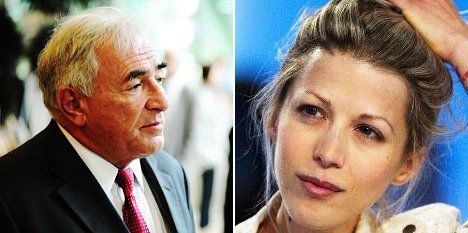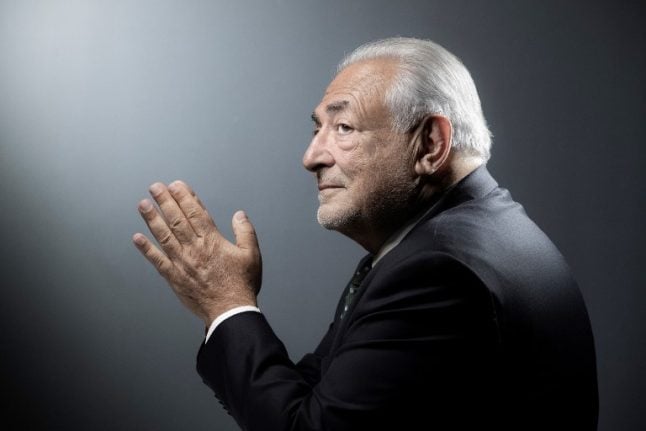“I tried to take her in my arms. I tried to kiss her on the mouth. She pushed back firmly. She cried out, more or less, ‘Are you mad?’ I immediately relaxed my grip. She grabbed her things and left the flat, furious,” he said.
On Thursday, French prosecutors halted an investigation into young writer Tristane Banon’s claim that Strauss-Kahn, a politician and family friend 30 years her senior, had tried to rape her in an unfurnished Paris flat in 2003.
The magistrates said that, while Strauss-Kahn had admitted to acts “that could be qualified as sexual assault”, the statute of limitations on such an offence — more minor than attempted rape — was only three years.
For 32-year-old Banon’s lawyer, the ruling was a partial victory, allowing him to claim that it showed that his client had not invented the incident to smear Strauss-Kahn, as the accused and his supporters once claimed.
“He will have to be satisfied with being an unconvicted sex attacker, protected by the statute of limitation from criminal charges, but not from legitimate suspicion about his behaviour towards women,” her lawyer said.
The lawyer, David Koubbi, said the decision “while unsatisfactory, is a first victory for Miss Banon as, after five months of fierce combat, it has been established beyond doubt that her case is not without substance.”
Having failed to convince state prosecutors to take up the case, she has not ruled out lodging a personal complaint, in which case an independent investigating magistrate would have to re-examine the evidence.
Strauss-Kahn’s lawyers argue that the prosecutor’s decision to drop the case leaves their client “completely cleared” and supports his claim that, while he “made and advance” on Banon, he had not been violent.
“When someone is the subject of a complaint and this complaint is shelved without charge, that means there’s no grounds for prosecution. That’s called being cleared,” said Frederique Beaulieu.
Banon and Strauss-Kahn were interviewed by police during the inquiry.
She claims he lured her to a bare Paris flat on the pretext of giving her an interview for a book she was researching, then grappled with her “like a rutting chimpanzee” while attempting to pull off her jeans.
The former IMF director also still faces a civil suit in New York, where another young woman, a hotel chamber maid, claims he tried to rape her in May.
Strauss-Kahn again denied violence but admitted he had had a sexual encounter with the maid during her seven-minute visit to clean his room.
He was charged in a New York court, but prosecutors dropped the case amid doubts over the woman’s testimony. She is pursuing a civil case for damages.
The New York scandal effectively torpedoed 62-year-old Strauss-Kahn’s plan to challenge President Nicolas Sarkozy in next year’s presidential election, forcing him out of a race in which he was the clear favourite.
Since his return to France he has tried to rebuild some of his reputation, apparently with an eye to some kind of return to frontline politics, and he and Banon have continued to joust in alternating media appearances.
This week, Banon launched her latest book, a 128-page novelisation of her experiences, extracts of which were published in this week’s mass circulation Paris Match news magazine.
In “Le bal des hypocrites” (The Hypocrites’ Ball) she does not identify her alleged attacker by name, but refers instead to a “pig” and a “baboon man”.



 Please whitelist us to continue reading.
Please whitelist us to continue reading.
Member comments